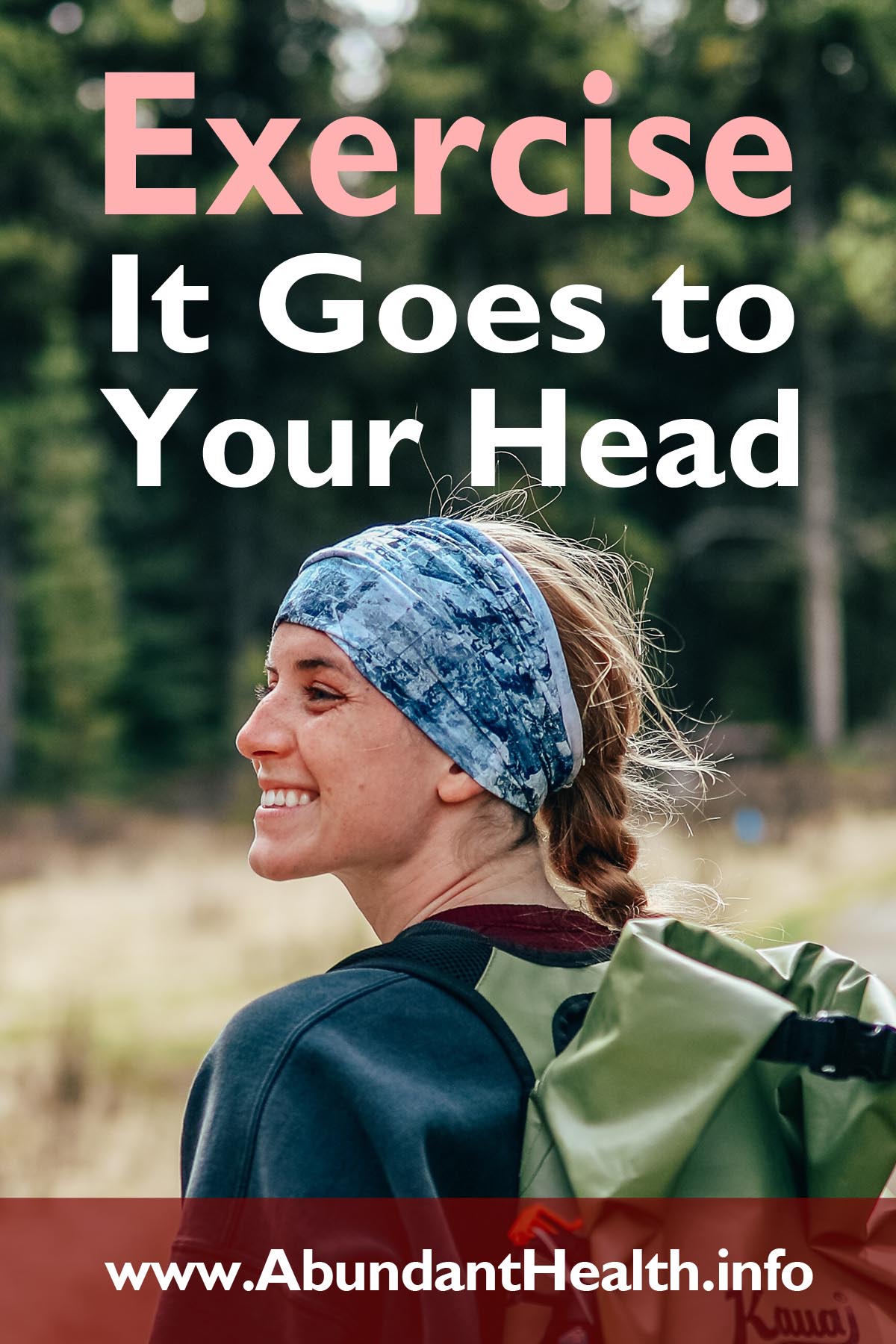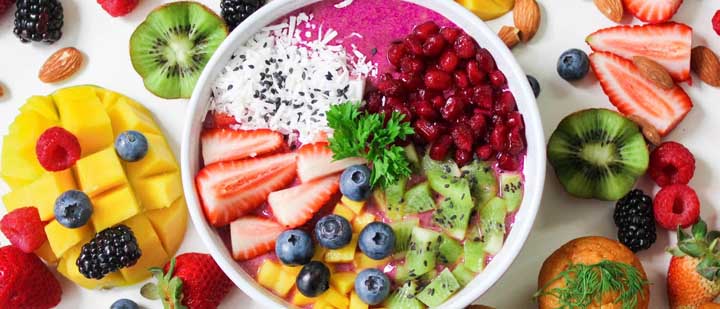Hulda was depressed, overweight, sickly, and constantly fatigued. In her 60’s and suffering from the loss of her husband, her poor health aggravated her depression. Born in 1896 and reared on a Canadian farm, her diet was rich in meat, milk, cream, butter, eggs, and candy. She began walking to relieve her sadness — and set some new records in the process!

Between the ages of 65 and 91, Hulda Crooks scaled 14,505-foot Mount Whitney 23 times, won eight world athletic records for women over the age of 80, and climbed 86 different Southern California peaks — all over 5,000 feet! Affectionately known as “Grandma Whitney”, Crooks Peak near Mount Whitney was named in her honor in 1990.
Hulda described a typical day in her life at age 80: “Early to bed and early to rise. Out jogging about 5:30 a.m. Jog a mile and walk it back briskly. It takes me 12 minutes to jog the mile and 15 minutes to walk it. Do some upper trunk exercises, work in the yard, walk to the market, and work.”1)Vibrant Life, Jan 1, 1989. Two Women with Zest and Vitality after Age 80.”
At 91 she became the oldest woman to climb Mount Fuji in Japan. She hiked the entire 212-mile John Muir Trail in the High Sierras. She died at 101 — without depression.

A healthful diet, exercise, faith in God, and a positive mind-set proved a winning combination for Hulda. She wrote: “I have an abundance of fresh raw fruits and vegetables as well as the cooked kind. . . .You need both a good diet and sufficient exercise. The exercise is absolutely essential in keeping up a good circulation. If we don’t exercise, the circulation is sluggish and that affects the entire body, the mental as well as the rest of the body.” She found that being in nature was a tranquilizer for her emotions. She called nature “the picture book of the Bible.”
Hulda believed that “mental attitude has so much to do with every function of the body. If we can develop an attitude of gratitude for the blessings that we have, we will be much better off.”
What if she didn’t feel like exercising? Hulda replied: “Usually I do it anyway. . . . If the brain is on top, it should be in charge and tell the rest of the body what to do. And so that’s what I do.”
Grandma Whitney “showed the world that mental, physical, and spiritual health is attainable at any age.”2)Hulda Crooks passes away at 101. Loma Linda University news release, 1997. Hulda climbed more than mountains; she climbed out of poor health habits and depression into a positive, balanced lifestyle.
Do you need to climb mountains in order to obtain the exercise advantage? Actually, a daily regimen of modest exercise has a powerful effect on the mind as well as the body. When you feel better, you think better. Motion balances emotion. Exercise promotes physical health by reducing the risk and progression of heart disease, stroke, diabetes, and cancer. It also:
Improves Mood
- Students who exercise show lower levels of anxiety, shyness, loneliness, and hopelessness than less active peers.3)Adolescence 1994 Spring:29(113)183-91
- Moderate, regular exercise improves mood, vigor, psychological well-being, creativity, and self-esteem in all age groups.4)J Cardiopulm Rehabil 1994:14:35-42.
Obes Res 1998 May:6(3)208-18.
Percept Mot Skills 2002 Jun:94(3 Pt 1)732-4.
Percept Mot Skills 2001 Aug:93(1)311-6. - Regular exercise can reduce symptoms of depression, and even alleviate major depression.5)Psychosom Med 2000 Sep-Oct:62(5)633-8.
J Clin Psychol 2001 Nov:57(11)1289-300.
Reduces Stress
- A single bout of exercise can be a valuable short-term therapy for reducing tension, depression, anger, and confusion.6)J Psychosom Res 1996 Feb:40(2)123-41.
Percept Mot Skills 1991 Jun:72(3 Pt 2)1203-9. - A ten-minute brisk walk will yield one hour of increased energy and reduced tension, whereas a sugary snack can result in fatigue and tension.7)Percept Mot Skills 1991 Jun:72(3 Pt 2)1203-9.
J Pers Soc Psychol 1987 Jan:52(1)119-25. - Moderate-intensity exercise is more beneficial than high-intensity exercise for anxiety reduction.8)Med Sci Sports Exerc 1999 Mar:31(3)456-63.; Med Sci Sports Exerc 2000 Feb:32(2)549.
- Regular exercise increases the ability to handle stress by lowering stress hormones.9)Am J Physiol Regul Integr Comp Physiol 2003 Feb:284(2)R520-30.

Boosts Brain Power
- Exercise stimulates neuronal growth and blood flow in the brain, and increases neurotransmitter availability and efficiency.10)Sports Med 1995 Feb:19(2)81-5.
- Aerobic exercise improves mental fitness, particularly the ability to plan, coordinate, and filter out distracting information.11)Nature 1999 Jul 29:400(6743)418-9.
- Physical activity enhances learning and memory.12)Neuroscience 2003:117(4)1037-46.
Neurobiol Aging 2002 Sep-Oct:23(5)941-55. - Exercising children learn better.13)Healy J. Endangered Minds: Why Our Children Don’t Think and What We Can Do About It (New York, NY: Simon and Schuster, 1991).
- Brisk walking for 45 minutes 3 times a week can improve mental processing abilities that normally decline with age.14)Psychol Sci 2003 Mar:14(2)125-30.
What is the best form of exercise? It’s the one you are willing to stick with! Have a plan for every season. Enjoy brisk walking, hiking, jogging, bicycling, swimming, golfing, skiing, or canoeing. Chores such as splitting wood, raking, and gardening provide many health benefits. Keep your gym bag packed and in the car to remind you to go to the gym as part of your work or school day. Work with your healthcare provider or educator to adopt a plan that will work for you.
Call to Action
“Blessed are those that keep My ways…For by Me your days will be multiplied, and years of life will be added to you” (Proverbs 8:32; 9:11). From the beginning, God linked exercise with lifestyle and nutrition. God blessed man with exercise as an antidote to many mental and physical maladies, and He will help both improve—as you get up and move! Movement creates positive changes in physical, mental, and emotional states. So when you feel down, get up and get moving.
What exercise are you going to enjoy today?

Stay Always Up to Date
Sign up to our newsletter and stay always informed with news and tips around your health.
This article was originally published on the Time to Get Ready website.
Visit LifestyleMatters.com for more resources.

Vicki is the Director of the Lifestyle Matters Health Intervention Series. As an author, speaker, teacher, and program developer, she lectures and travels worldwide sharing the lifestyle link to better mental, physical, and spiritual health. Vicki’s special area of interest is brain/body connections, forming habits that last.
References
| ↑1 | Vibrant Life, Jan 1, 1989. Two Women with Zest and Vitality after Age 80.” |
|---|---|
| ↑2 | Hulda Crooks passes away at 101. Loma Linda University news release, 1997. |
| ↑3 | Adolescence 1994 Spring:29(113)183-91 |
| ↑4 | J Cardiopulm Rehabil 1994:14:35-42. Obes Res 1998 May:6(3)208-18. Percept Mot Skills 2002 Jun:94(3 Pt 1)732-4. Percept Mot Skills 2001 Aug:93(1)311-6. |
| ↑5 | Psychosom Med 2000 Sep-Oct:62(5)633-8. J Clin Psychol 2001 Nov:57(11)1289-300. |
| ↑6 | J Psychosom Res 1996 Feb:40(2)123-41. Percept Mot Skills 1991 Jun:72(3 Pt 2)1203-9. |
| ↑7 | Percept Mot Skills 1991 Jun:72(3 Pt 2)1203-9. J Pers Soc Psychol 1987 Jan:52(1)119-25. |
| ↑8 | Med Sci Sports Exerc 1999 Mar:31(3)456-63.; Med Sci Sports Exerc 2000 Feb:32(2)549. |
| ↑9 | Am J Physiol Regul Integr Comp Physiol 2003 Feb:284(2)R520-30. |
| ↑10 | Sports Med 1995 Feb:19(2)81-5. |
| ↑11 | Nature 1999 Jul 29:400(6743)418-9. |
| ↑12 | Neuroscience 2003:117(4)1037-46. Neurobiol Aging 2002 Sep-Oct:23(5)941-55. |
| ↑13 | Healy J. Endangered Minds: Why Our Children Don’t Think and What We Can Do About It (New York, NY: Simon and Schuster, 1991). |
| ↑14 | Psychol Sci 2003 Mar:14(2)125-30. |
Leave a Reply